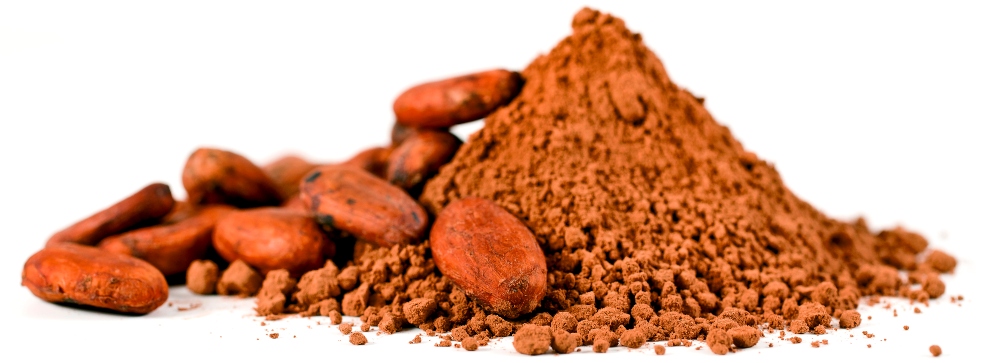Proper hydration of ingredients is a challenge for many producers of Ultra-High-Temperature (UHT) treated beverages. If not properly hydrated, spores present in the ingredients can survive the heat treatment and spoil the final product, resulting in food waste. To tackle this challenge, a public-private consortium of industrial and knowledge partners is diving into the aspect of ingredient dispersion and hydration, particularly for difficult-to-hydrate ingredients such as cocoa powder and plant-based protein ingredients. In this multi-year project, the partners will scrutinize hydration states of ingredients, define critical parameters for optimal wettability and investigate the correlation between spores in ingredients, ingredient (pre)processing conditions and potential spoilage of aseptically packaged shelf-stable and extended-shelf-life beverages. The consortium will provide a scientific basis for powder (pre)processing best practices and provide applicable guidelines for both existing and new (plant-based) hydrophobic ingredients in the beverage industry. The ultimate aim of the project is to prevent spoilage and reduce food waste.

Producing microbially stable beverages
The ever-growing demand for healthy and sustainable foods has resulted in an increasing interest in plant-based foods and beverages, for which a wide variety of plant protein-based ingredients have become available. Other plant-based ingredients, such as cocoa powder, are popular flavouring compounds for both dairy and dairy-alternative food and beverage products. Cocoa-flavoured and plant protein-based drinks currently on the market are generally subjected to high levels of heat processing, such as UHT treatment, to ensure microbial quality. Nevertheless, unexpected non-sterility issues occur occasionally, leading to spoilage of products during shelf-life. The cause is often identified as the presence of heat-resistant (HR) bacterial spores in the finished product that originate from the cocoa or plant protein powders. Such spoilage is not correlated to spore loads of the ingredients – which are generally present in low levels – meaning that other factors are involved that influence spoilage of the finished product.
Hydration is key
Cocoa powder is a well-known and popular flavouring compound that has posed a challenge for food manufacturers for decades. A known, but not well understood factor that influences incidental spoilage of cocoa-containing UHT liquid products is insufficient hydration of cocoa before UHT treatment. Dry pockets prevent full wet heat penetration, resulting in an ineffective UHT treatment for the optimal inactivation of spores. With the rapidly growing demand for plant-based dairy alternatives and wide variety of choice of plant protein powders, the struggle and challenge with hydrophobic beverage ingredients is expected to expand even further. This is accompanied by a growing need for guidelines on how to reach optimal hydration for specific product applications, supported by scientific insights that can facilitate root cause analysis and process optimization procedures.
A multidisciplinary approach
Finding the root cause – and solution – to spoilage of UHT beverages containing cocoa or other plant-based ingredients cannot be achieved from an individual discipline. Understanding and preventing spoilage requires expertise from multiple scientific disciplines. On the one hand, microbiology experts are essential for providing knowledge on bacterial spore properties, such as heat inactivation, germination and growth and variations between species. On the other hand, physical chemistry expertise is required to understand and describe the hydration of poorly dispersible ingredients. These scientific insights must also be translated to the practical world, and for this, process engineering in indispensable with regard to hydration as well as the (UHT) heating procedure. This consortium brings together experts from all the necessary domains, to tackle this challenge from every angle and breed understanding across disciplines.
Public-private collaboration to develop required knowledge and tools
In this consortium, the research organizations NIZO food research (coordinator) and University of Applied Sciences van Hall Larenstein join forces with Abbott Nutrition, Saputo, Danone, BarryCallebaut and olam food ingredients to execute a multi-year research project to investigate strategies for proper hydration of cocoa and other hydrophobic plant-based ingredients including how to monitor the hydration process during production of UHT-treated beverages. The project aims to deliver insight into the correlation between levels and types of sporeformers in cocoa powders, the degree of hydration during (pre)processing and sterility of finished liquid products supported by scientific data and measurements. The results from the project will be used to optimize strategies to properly hydrate and process cocoa powders for application in beverage products. These methods and strategies will be applied to the wider scope of plant protein powder ingredients. Foreseen guidelines will help minimize the risk of spoilage by enabling adequate heat inactivation of heat-resistant bacterial spores with the eventual aim of reducing the risk of spoilage of cocoa- and plant protein containing beverages, while maintaining sensory quality. In addition, the guidelines are meant as a reference to support root cause analysis and definition of control strategies in the incidental event during which non-sterility issues caused by spores are observed.
This project receives financial contribution from the Topsector Agri & Food. Within the Topsector industry, knowledge institutions and government collaborate on innovations for safe and healthy food for 8 billion people in a resilient world.
“Understanding potential spoilage issues caused by spores in hydrophobic food ingredients requires a holistic and multidisciplinary approach. By working together in this public-private consortium project, we combine expertise in microbiology, physical & analytical chemistry, process engineering, ingredient and food manufacturing and sensory research. This will have a positive impact on future innovations of plant-based foods worldwide.” says Dr. Wessel Vlug, Project Manager at NIZO.
This consortium is still open to welcoming additional industrial partners.
Related cases
Related blogs
- Lichenysin
- Cereulide
- Antimicrobials
- Virulence
Related terms
© NIZO 2025 | Sitemap - Privacy Statement - Cookie Statement - Terms & Conditions
Website by: Online Marketing Agency





